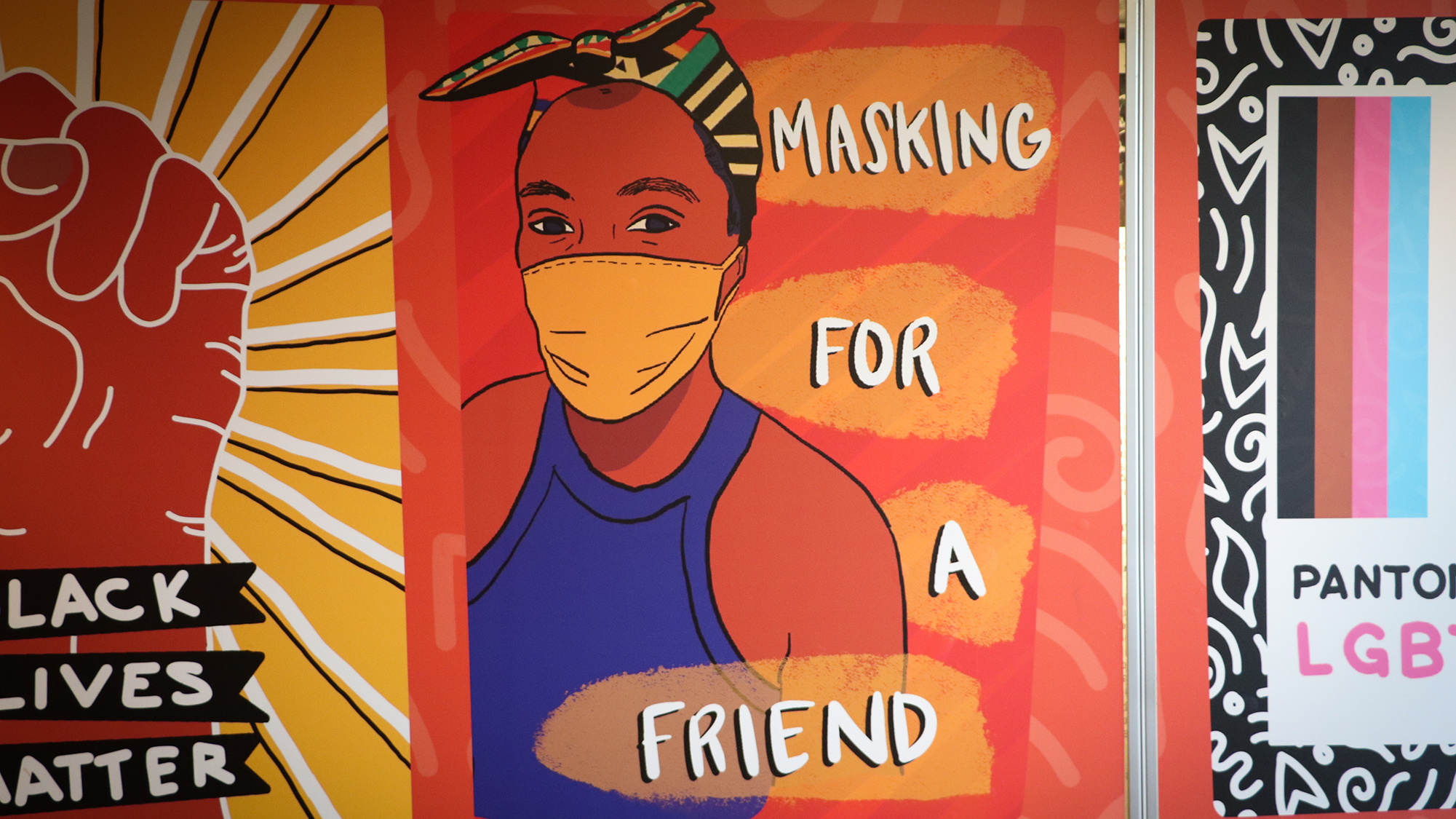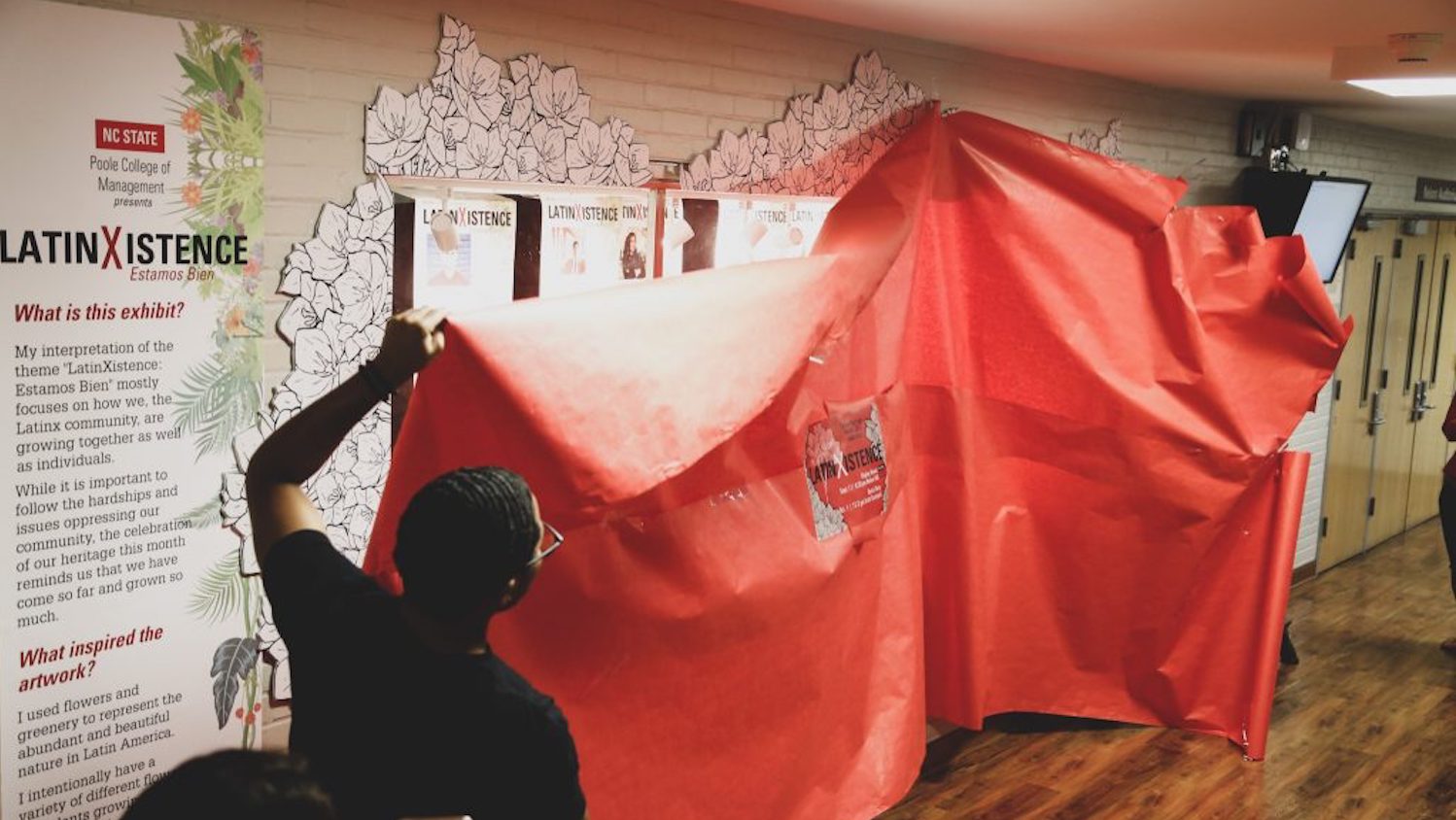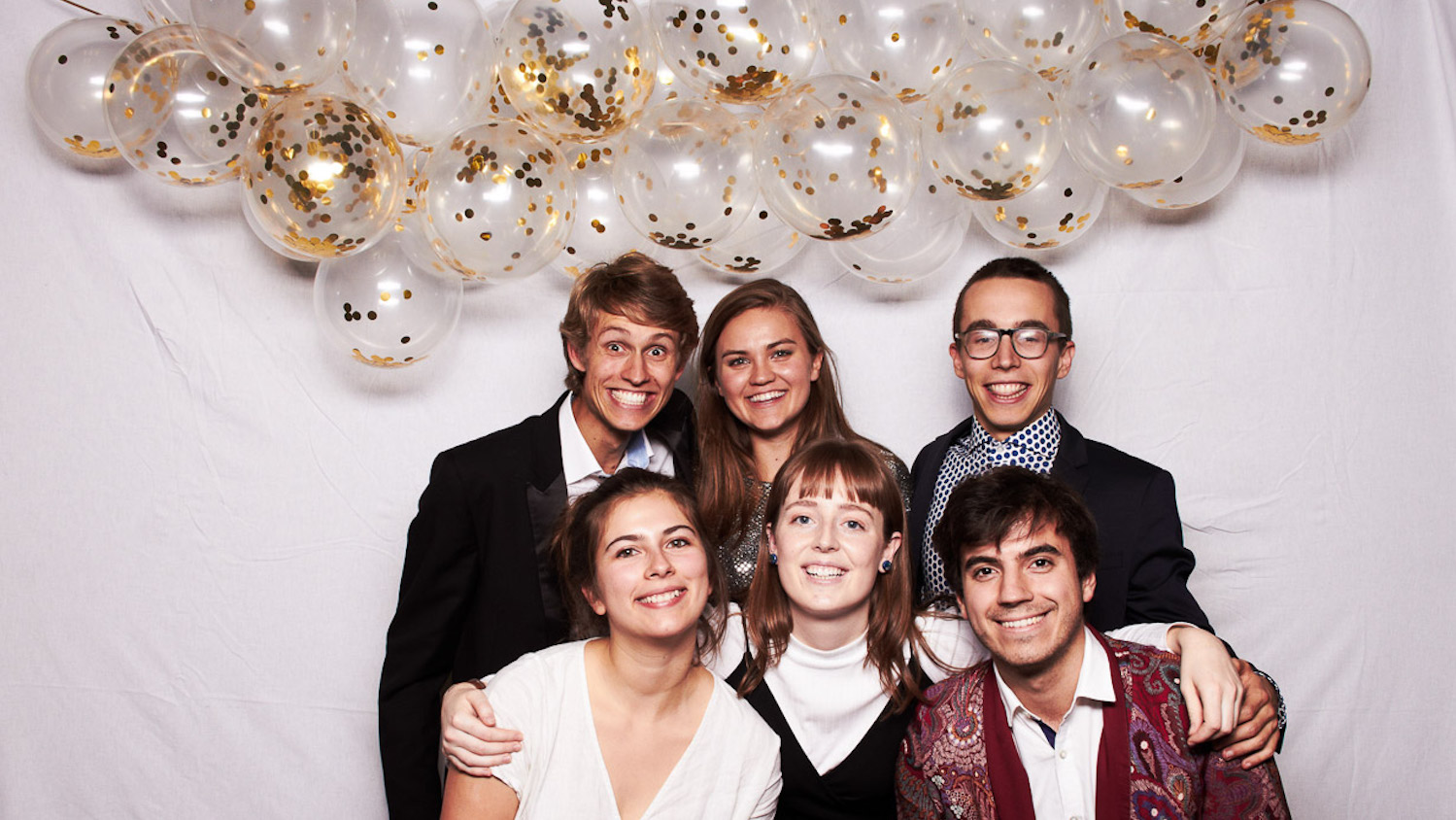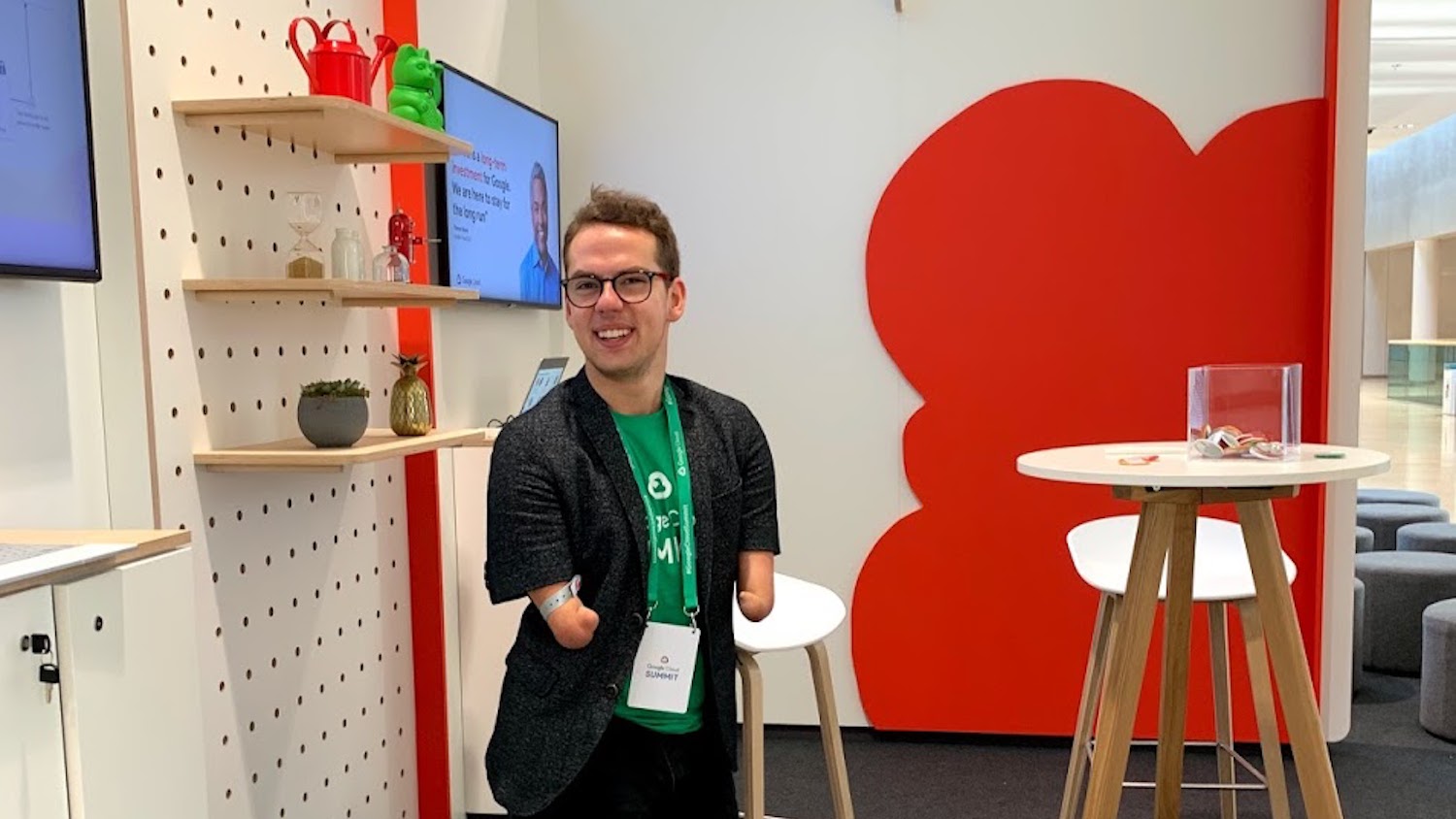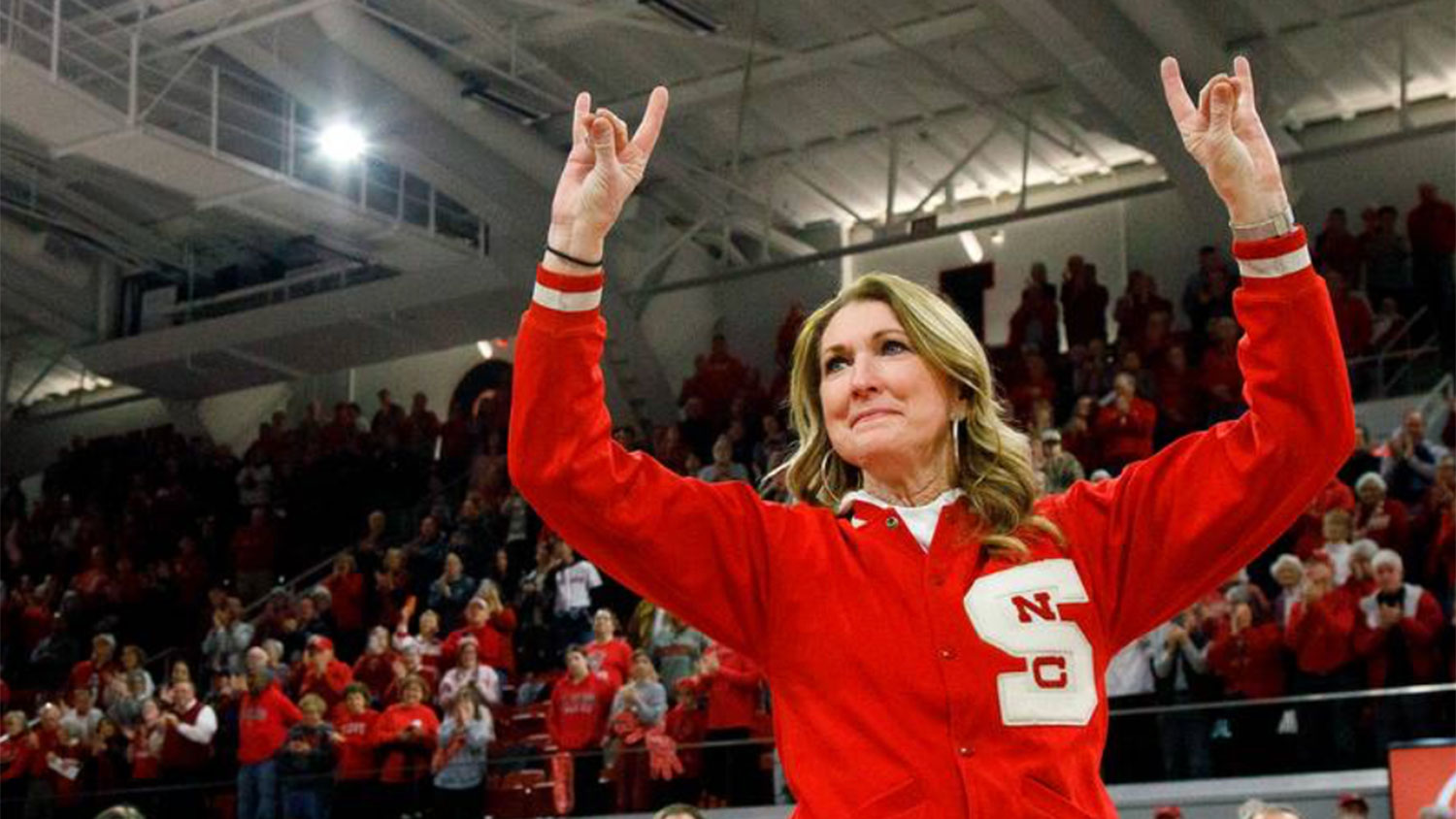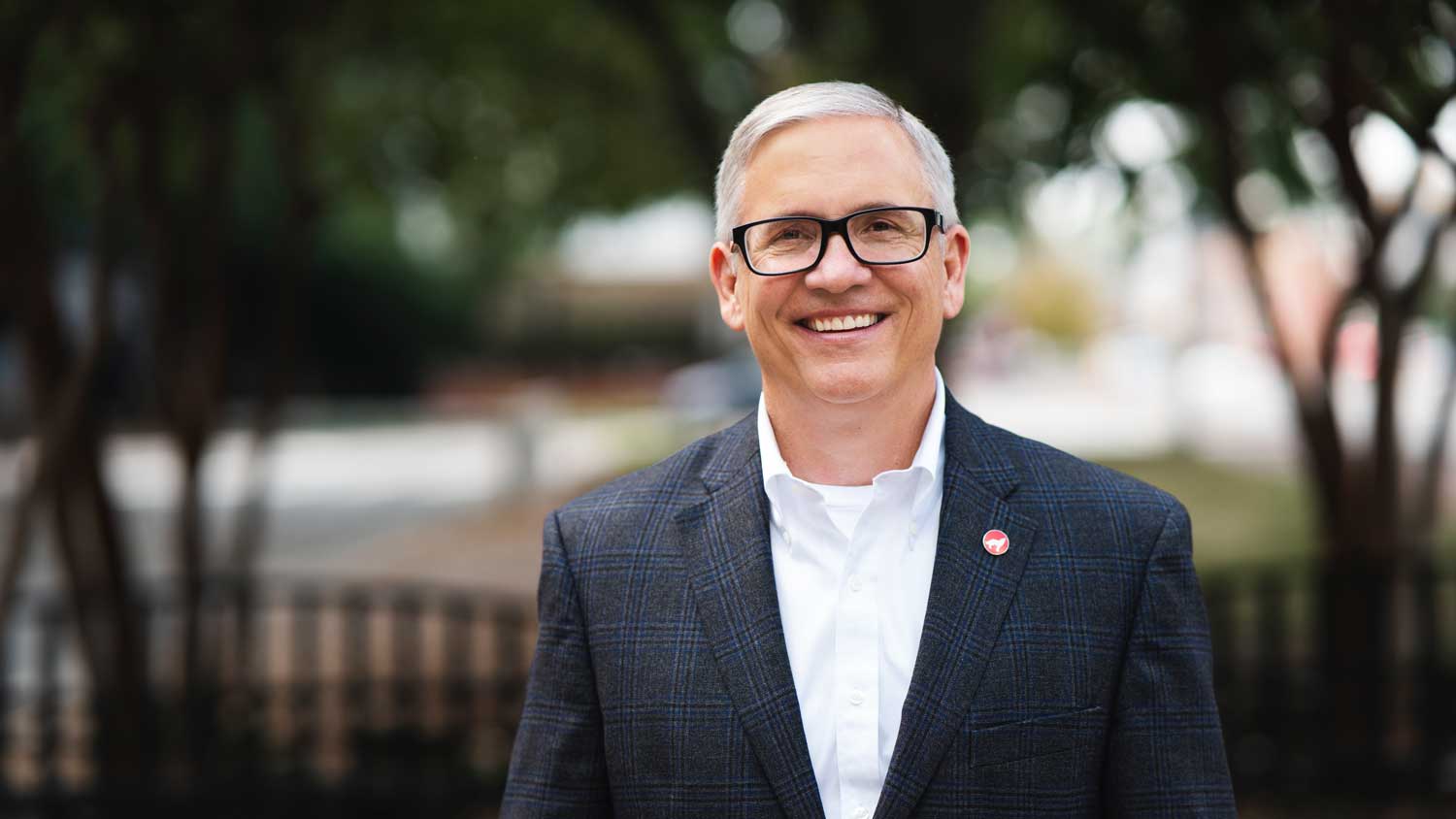Today in Nelson Hall, the words “INCLUSIVE BY DESIGN” are painted in vivid orange on a wall in the college’s Diversity and Inclusion Hub. A Land Acknowledgment Board is posted outside Port City Java on the main floor, telling all passersby which Indigenous peoples once stewarded the land that NC State currently sits upon. And on the building’s third floor, a large, colorful mural displays messages celebrating trans rights, affirming LGBTQIA+ people and proclaiming that Black Lives Matter.
These are just a few of the most visible manifestations of the Poole College of Management’s dedication to advancing diversity, says Tayah Butler, the college’s director of diversity and inclusion.
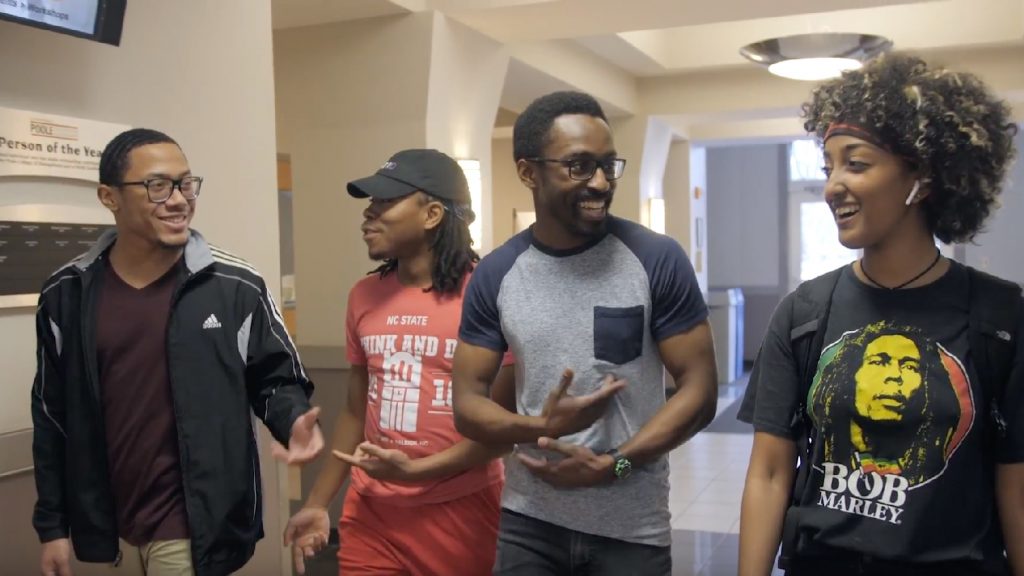
Showcasing Success
“When I arrived at Poole, I saw an opportunity for us to showcase how members of different communities have been successful in the business world,” Butler says. “Lots of people exist at that intersection of underrepresented groups and business success, but they’re not always so visible. At Poole College, we’re taking steps to change that.”
Since Butler joined the college in 2016, she’s been working hard to support and extend diversity efforts that were already in place — and to launch new initiatives to make Poole College a 21st-century leader in diversity, equity and inclusion.
For instance, Butler worked with Poole College administrators to have content on inclusive practices added to the M 100 course, “Personal and Professional Identity Development,” which is required for all undergraduates. The college also started featuring Inclusive Leaders and Inclusive Recruiters at the biannual Career and Internship Fair and at events connected with it, such as the Inclusive Recruiter Reception and the Inclusive Leader Breakfast. In addition, the college includes hundreds of diversity-related activities in the Poole Leadership Program, which allows undergraduates to earn an inclusive leader badge, among other valuable certifications.
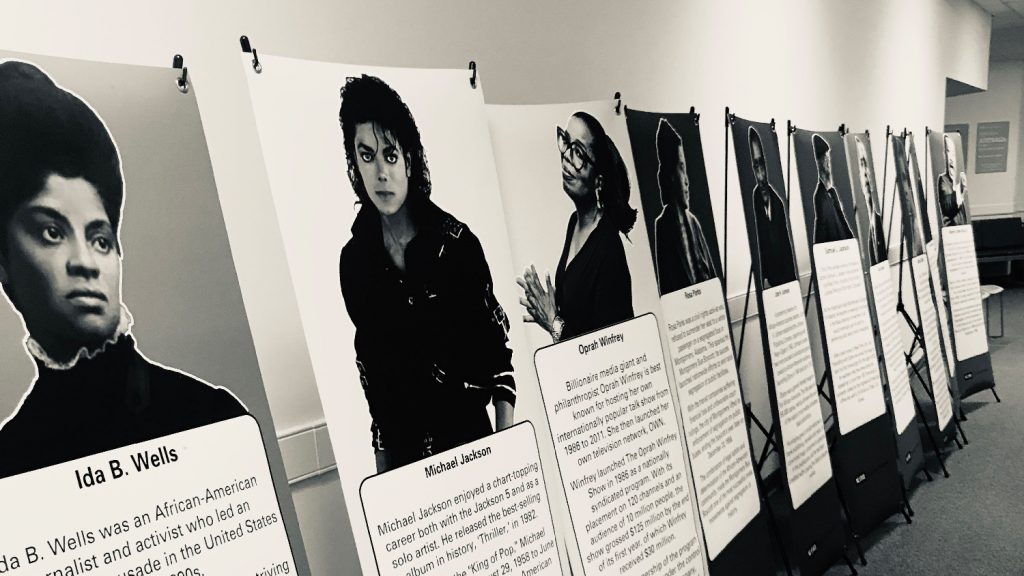
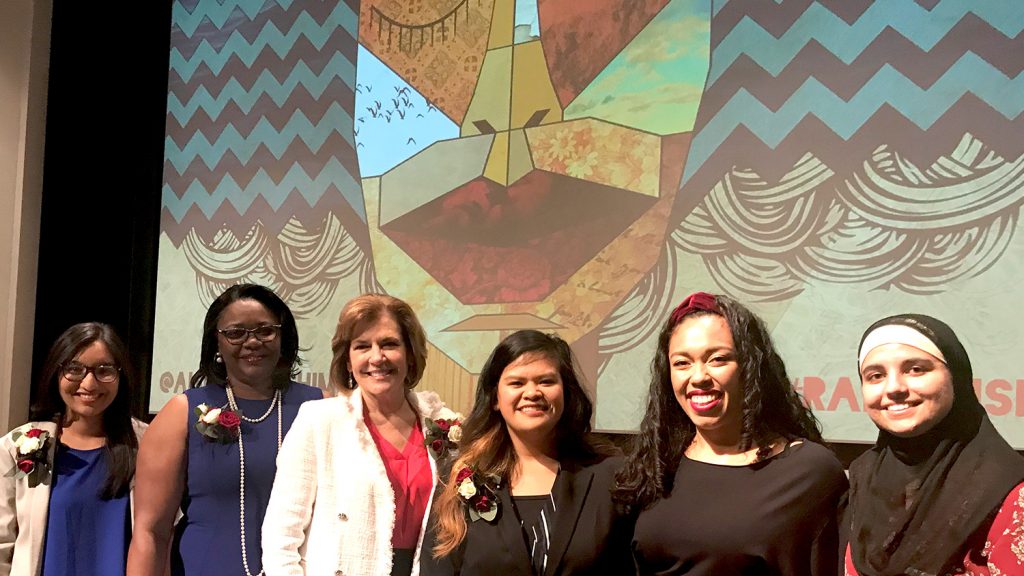
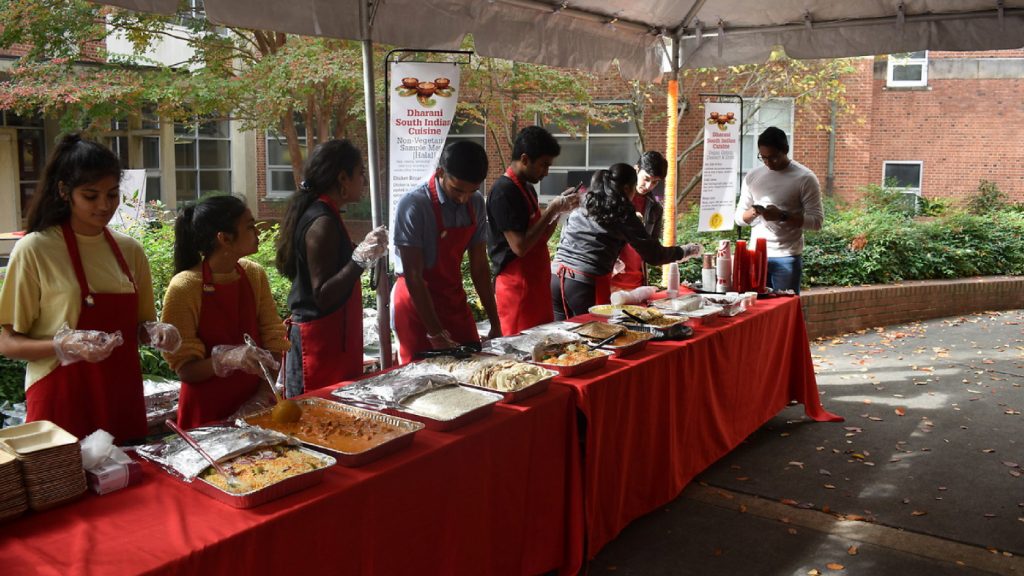
Having Fun With Heritage Celebrations
Butler has also worked with student leaders to institute a series of heritage celebrations that honor different communities represented in the college.
“Our heritage celebrations have become a really fun way for our college to contribute to the campuswide calendar of heritage events,” Butler says.
That sense of fun seems to be catching on, both within Poole College and across the wider campus.
“Our Latinx Heritage Month started out three years ago with one chef providing food for a few dozen attendees in the coffee commons area of Nelson Hall,” Butler says. “Today that same celebration has grown to take over Governor Scott Courtyard, with multiple food trucks feeding five hundred people. Now people all over campus look forward to what we call our ‘barrio party.’”
Poole College also sponsors community celebrations of Women’s History Month, Black History Month and Diwali, and the college held its inaugural Poole Pride Conference in March 2020.
Research Proves Value of Diversity
The college’s focus on diversity isn’t limited to campus events. Poole College researchers are busy creating and disseminating original scholarship on the value of diversity and the pervasiveness of bias. Recent examples include the following:
- Poole College professors Richard Warr and Roger Mayer collaborated with Jing Zhao, now on the faculty of Portland State University, to determine whether a company’s diversity policies affect how innovative it is. They discovered that companies with pro-diversity policies were more likely to announce the filing of new patents or to launch new products, which led to increases in the companies’ value. Their research was published in the Financial Management journal.
- Professor Fay Cobb Payton collaborated with colleagues from Penn State to analyze how the hiring software used by the IT industry contains algorithmic biases against job candidates from underrepresented groups. They recommend an approach called “feminist design thinking” as a way to counteract or prevent these biases from affecting the hiring process and further harming people who are underrepresented in IT. Their analysis and recommendations were published in the Online Information Review.
- A study funded by the Ford Foundation and conducted by a team including Jessica Thomas, director of the Business Sustainability Collaborative, and Jeffrey Pollack, associate professor of entrepreneurship, examined how startups owned by women and people of color add significant value to communities and economies. The study also showed that these businesses receive a disproportionately small share of venture-capital investments, and it proposed ways for business funders to better support these vital commercial enterprises.
- Poole College researchers Michael Stanko, associate professor of marketing, and Mariam Diallo, a student in the MBA program, collaborated with a colleague from Saint Ambrose University to compile a case study of the Aunt Jemima brand of pancake mix. The Aunt Jemima character, invented in 1889, is a vestige of the “Mammy” caricature designed to soften the legacy of slavery in modern times. Corporate owner PepsiCo retired the Aunt Jemima brand in June 2020 in response to nationwide outrage over racist policing. The case study was published by Ivey Publishing.
- Poole College’s Tayah Butler collaborated with professors Beth Ritter and Marcia Gumpertz and former student Alexsiara Bynum to study how to teach undergraduate students about bias in an introductory human resources course. The team developed an instructional module teaching students about coded language and how it affects HR processes, and they administered it to students and studied its effectiveness. Their research was published in the Journal of Accounting Education.
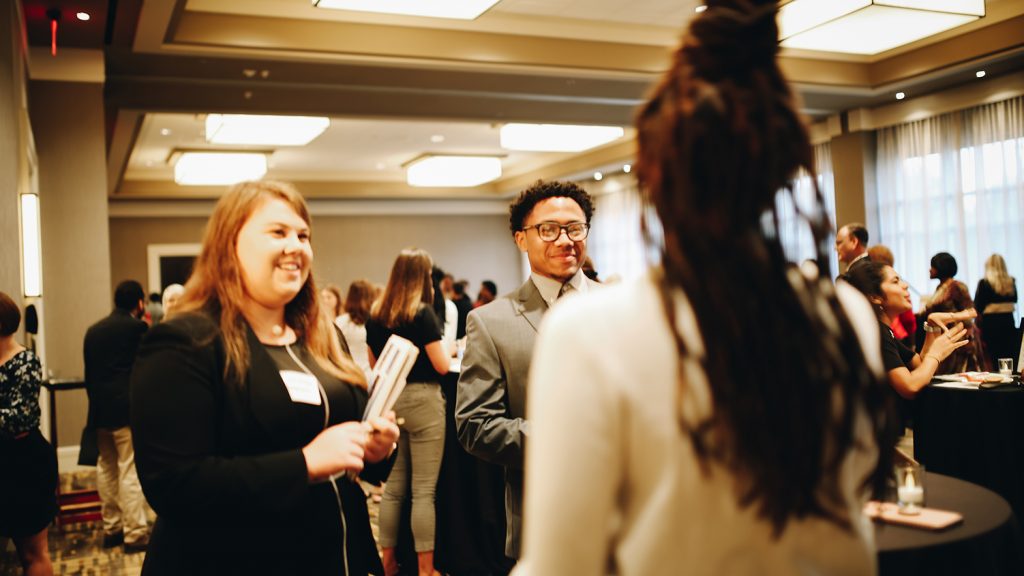
Donors Show Support for Inclusion
As Poole College advances diversity both within the college and across society, business leaders are taking notice — and they’re stepping in to lend a hand.
For example, in 2018 the VF Foundation made a gift to the college to enable students from underrepresented and minority groups to participate in a wide spectrum of experiential learning opportunities.
“Poole College and the university as a whole offer tremendous opportunities for students to learn beyond the classroom, such as study abroad, Alternative Service Break, conferences and workshops,” says Butler. “However, not all students have the financial resources to participate.
This gift from the VF Foundation removes significant roadblocks, making such opportunities possible for all of our students.”
The college’s most recent gift in support of diversity and inclusion came from the John Deere Foundation, whose giving to the college’s diversity fund increased fivefold between 2016 and 2020.
“Gifts to the diversity fund have been increasing across the board for some time now, both from individuals and from corporate donors,” Butler says. “Our alumni and friends have been watching us, and they want to be part of this emerging culture. The diversity fund gives them that opportunity.”
Whether it’s sponsoring heritage events, supporting original research or helping students through donor generosity, the Poole College of Management strives to champion diversity, equity and inclusion within the college, across campus and throughout the nation.
“I believe that business students have a disproportionate opportunity to solve challenges that communities face in the modern economy,” Butler says. “It’s our role as a business college to equip those leaders with competence, fluency and comfort in intercultural work spaces. We need all faces at the table.”
- Categories:
